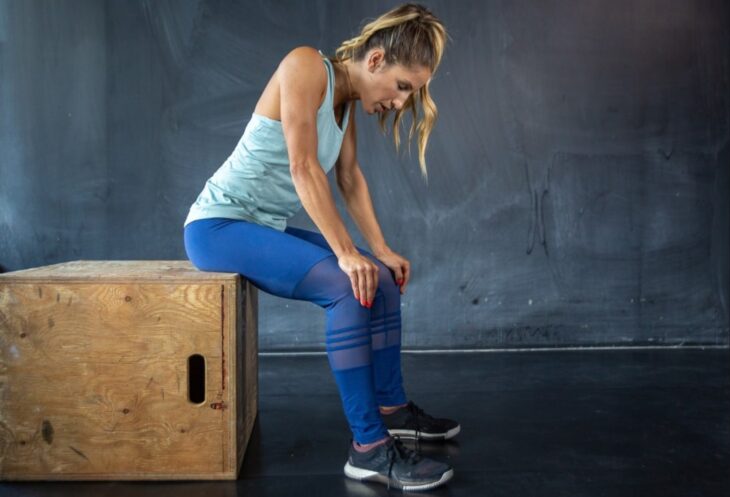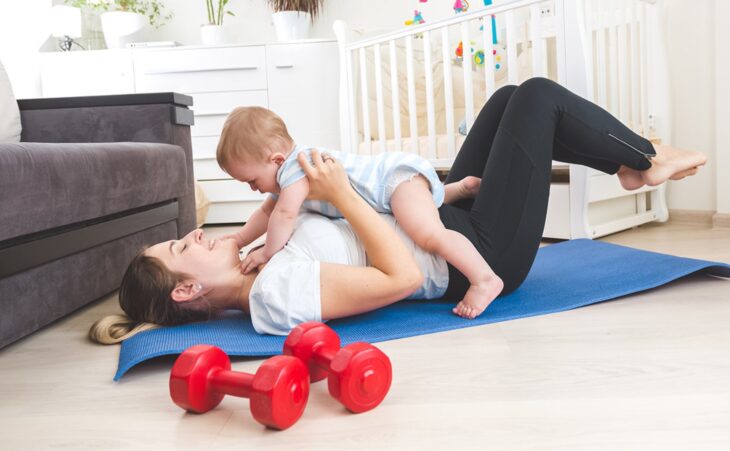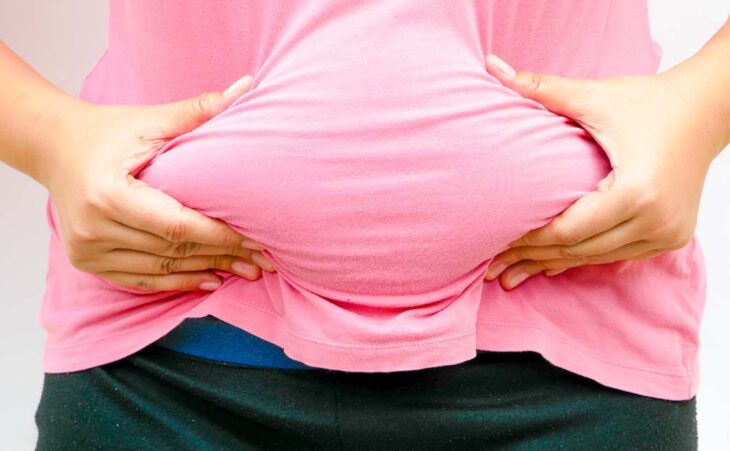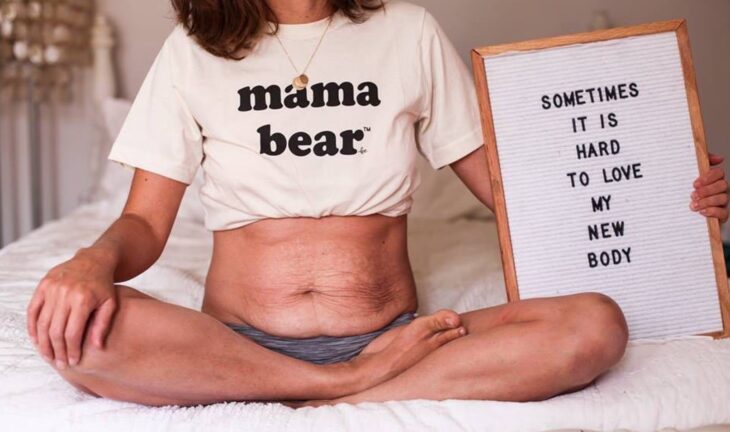After you have given birth, getting rid of the excess pounds you have put on during your pregnancy might be your top priority. As most women lose half of their baby weight roughly around 6 weeks postpartum, you might be wondering, “what extra weight loss products can I use to aid my weight loss journey?”
It has been advised that a consistently healthy diet and daily exercise routine is the perfect way to lose the pounds. By losing weight slowly and steadily, this should also prevent any unwanted stretch marks. In this article, we explain how recovery training can be the perfect way for your postpartum mums to shed the pounds.
Contents
Rest and recovery training helping you lose weight

Source:Runtastic
Rest and recovery should be an essential part of your exercise routine, whether postpartum or you have given birth 6 months ago, muscle recovery training gives your muscles time to repair and rebuild themselves between workouts. After carrying a baby around for around 40 weeks, post-birth a woman’s body will be taking its toll and feeling particularly achy. After having a baby, a mother might also experience a number of other struggles, including:
- Bleeding
- Soreness of muscles
- Fatigue caused by late nights/early mornings
Particularly post-birth, rest will allow your muscles to rebuild and grow and help give you a little bit more energy to cater for your little one. If you were particularly into health and fitness pre-pregnancy, you will know that when you have more muscle, you’ll burn more calories at rest. That’s because muscle burns more energy than fat. So resting up after you have completed a little bit of exercise, will help you feel refreshed to cater for your little one and you’ll also be more likely to stick to your exercise routine and put in the maximum effort!
You might also be thinking that recovery training is only suitable for improving muscle health and helping prevent DOMS (Delayed On-Set Muscle Soreness). However, recovery training can help improve overall muscle health and wellbeing. As postpartum depression can affect many women, by acknowledging your health and wellbeing and taking care of your body post-birth will provide huge benefits.
The Science behind rest and recovery for weight loss

Source: Aaptiv
Studies have shown that people who sleep between six and eight hours a night have a greater chance of achieving their weight-loss goal than those who sleep less or more. As sleep can be quite sparse for new mothers and fathers, whether that’s waking up for a feed in the middle of the night or attending to a crying baby, muscle recovery products like the massage gun from Pulseroll.com lowers stress levels and can help achieve greater weight loss.
If someone is not sleeping well and is under stress, then sticking to a weight loss program will be more difficult. So easing the tension in your body, with adequate muscle recovery training, can help postpartum mums, de-stress ease aches and pains, and allow you to sleep better, helping to achieve weight loss goals.
Why you should look to lose weight post-birth

Source: FirstCry Parenting
Keeping excess baby weight could actually lead to further health complications, so post-birth, having a goal in mind to lose your baby weight is desirable. According to a study back in 2009, almost half of women gain more than the recommended amount of weight during pregnancy, so losing your ‘baby weight’ will:
- Reduce your risk of becoming overweight
- Reduce the risk of developing complications in any further pregnancies
- Reduce the likelihood of developing heart disease and diabetes
- Reduce risks for women developing gestational diabetes
After the pregnancy, it is completely normal ot have some excess weight, and although you should focus on losing it, you should keep in mind that it is a process and you cannot do it all at once. Therefore, finding suitable clothes for this transition period is something you should consider. For example, wearing waist trainers such as the ones available at HauteFlair, is a great way to cover your tummy and prepare for a night out or a social gathering. Of course, wearing clothes which are slightly more casual also helps.
What your recovery training routine should look like?

Source: FirstCry Parenting
When you have been carrying a baby, placenta, and experienced enlarged breast tissue and uterus enlargement for approximately 9 months, making it easy with your workouts is essential. However, depending on how much weight you put on during pregnancy, this will impact how quickly you will be able to shed the pounds.
A woman postpartum should in-fact have the main focus of achieving a normal weight range, rather unrealistic goals witnessed by celebrities. When you have your first session back after having a baby, you’ll most likely feel disconnected from your body, feel sluggish and uncomfortable, however just remind yourself that this is only the first step to returning to normal body weight and acknowledging your mental health and physical wellbeing.
After you have completed a workout post-birth, you should follow the same steps any avid fitness guru goes through. After exercise your muscles need time to repair, you need to give your body time to rest and recover, this will help give your muscles the chance to gain strength back and decrease any muscle strain you might be experiencing. As rest is just as important as training, on rest days this will be where the magic happens.
A typical postpartum mum exercise and recovery routine should look like:
- Start slowly – give your body time to heal, maybe a walk to start with
- Upper body stretching or postpartum exercise classes
- Avoid crunches and general ab workouts if your pelvic floor is weak
- Schedule in time for muscle recovery in the evenings
As muscles and metabolism go hand in hand for weight loss as more muscles equals a higher metabolism, combining light strength training with slow and steady cardio training will help increase your metabolism helping you burn fat, even when you are sat down having cuddles with the baby!
Scheduling in recovery time in the evenings and using recovery products, like a foam roller can help relieve any stress in your muscles, helping any muscles recover from carrying the baby and doing gentle exercises.
Listening to your body post-birth

Source: Medium
Post-birth, do not push yourself and listen to your body. It is important to note that you have carried a baby for approximately 40 weeks, it should take nearly as long to return to pre-pregnancy self. We won’t tell you that weight loss can be achieved by getting enough rest and recovery alone. But when paired with a sensible exercise routine and a healthy diet, it definitely aids the process and can provide you with enormous benefits including; improved sleep, improved mobility and naturally aiding the body to recuperate and recover itself.
